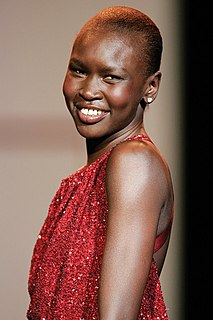A Quote by Billy Crudup
You can find the richness in any moment, even the most seemingly bleak. To try to do a movie about that was a joyful experience. So actually, it was really the context of it that made the experience so worthwhile, rather than the actual subject matter, if that makes sense.
Related Quotes
My greatest sense comes from the experience of performing in the movie. When I have a great experience, that becomes a perfect movie. If it makes a nickel, it's still perfect. The same is true with a movie that's a bad experience. If it makes a bejillion dollars, I will hate it till the end of time.
For us what we're trying to do is find the right balance of creating a space for emotion that leads to a sense of empathy and solidarity rather than a sense of division. In my most grandiose moments I think of HuffPost as a platform that makes solidarity possible, that really thinking about the emotional content of stories is a way to help people who think, or who have been manipulated to think, that they're interests are opposed to one another, that they actually are aligned in a fundamental way and they're actually in the same boat.
When we follow the reversal of normal experience, we find ourselves in an unusual, nearly mad experience. Being in an almost mad experience is not something we should fear: only in such experience are we jarred out of our common sense opinions and beliefs. It opens our minds to other ideas and thought. It makes us think.
Any play that makes an audience think out of the box, that makes connections to life and names our pain and by doing so makes our pain subject to thinking and the process of understanding, is doing something inherently political. By promoting understanding, by putting experience in context, by making connections between the normal and the rational, theatre is an act of anti-terrorism. It stimulates courage and a survival spirit. In that sense of political, there are a lot of serious plays doing their work in the world.
God is not a person; God is manifestation itself. We think that God is a superhuman person, but God is not a person. He is not a subject. We can never experience God in a subject/object experience. God is what makes a subject/object experience possible. We can never see God or experience God as separate from ourselves. God is a being but there is no division.
The ordinary method of education is to imprint ideas and opinions, in the strict sense of the word, prejudices, on the mind of the child, before it has had any but a very few particular observations. It is thus that he afterwards comes to view the world and gather experience through the medium of those ready-made ideas, rather than to let his ideas be formed for him out of his own experience of life, as they ought to be.
I have a perhaps naive point of view informed by my own kind of snowflake-in-the-unique-sense rather than the political sense, personal story. I mean I feel like my experiences are so hard to map onto any kind of generalized identity. For example, I'm a black person, but I come from a very particular black experience which is not unlike the experience of the Barack Obama. I have an African mother and a white father and I feel like I have a different experience of being a black person as a result of that identity than someone who is from the descendants of slaves.
I think every movie I've made after 'Indiana Jones,' I've tried to make every single movie as if it was made by a different director, because I'm very conscious of not wanting to impose a consistent style on subject matter that is not necessarily suited to that style. So I try to re-invent my own eye every time I tackle a new subject.
I don't particularly care about photographic authorship. Whether an astronaut who doesn't even have a viewfinder makes an image, a robotic camera, a military photographer, or Mike Light really doesn't matter. What matters is the context of the final photograph and the meaning it generates within that context.
What makes a sentence, a phrase, a moment, or a scene delightful? Something about recognizing the truth in it, hearing the music in it, understanding, intuitively perhaps, that the words are just right. It's not a matter of even context - delight is not limited to scenes or descriptions of happiness or beauty - but of aesthetic appreciation of the thing itself. As a reader, I find it's that moment when I want to stop reading, and also that moment when I know I can't. Delight is that it's what takes me by surprise and reminds me why I love the literary arts above all others.



































